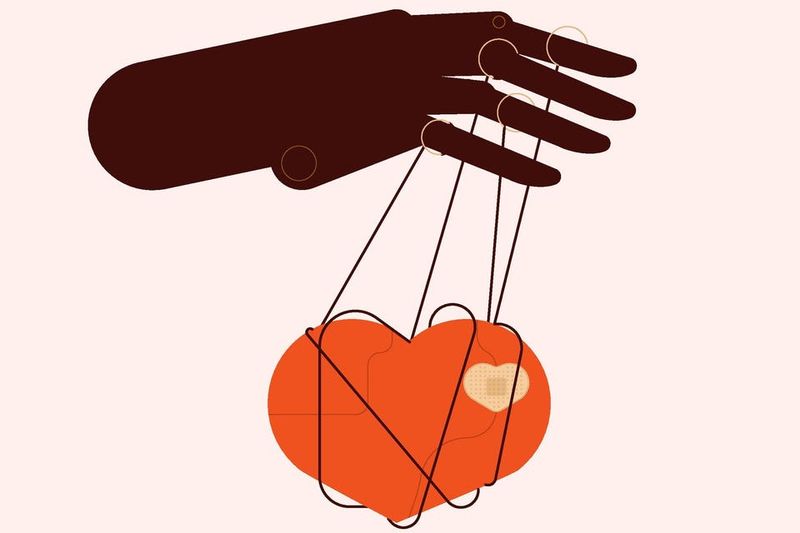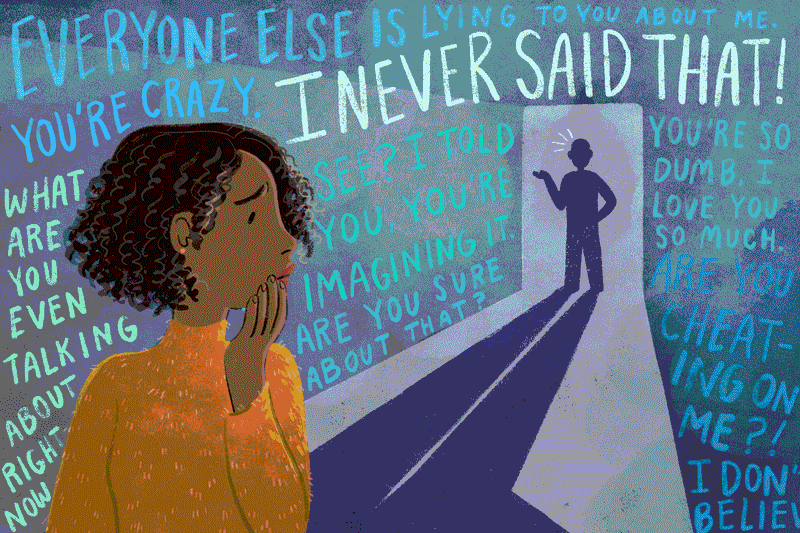Volatility in a relationship can be unsettling and sometimes difficult to identify. Understanding the signs can help in recognizing the patterns that might be affecting your emotional and mental well-being.
Here are 17 signs that your partner may be volatile, focusing on emotional instability, inconsistency, and manipulation.
1. Their mood changes suddenly and without warning
Imagine waking up to a beautiful morning, only to find the day’s mood darkens unexpectedly. A partner whose demeanor swings like a pendulum may leave you feeling dizzy. One moment they are cheerful, the next they are irritable, with no apparent trigger. This emotional rollercoaster is not only tiring but toxic.
It creates an atmosphere of uncertainty and stress, leaving you guessing what mood they will be in next. Such unpredictability can be a significant stressor in a relationship, sparking unnecessary fear of the unexpected.
Being in a relationship where moods change rapidly without any clear reason can drain your emotional energy and leave you feeling anxious most of the time.
2. You feel like you’re walking on eggshells
Do you find yourself tiptoeing around your partner, fearing that the slightest misstep could lead to conflict? This sensation is akin to walking on eggshells. It’s exhausting and emotionally draining.
Living in constant anticipation of an outburst can impact your mental health, making you second-guess your actions and words. Such tension erodes the foundation of trust and comfort essential in any healthy relationship.
This behavior not only affects your self-esteem but also creates a barrier to open and honest communication. You should never feel afraid to express yourself or worry about facing unreasonable anger.
3. They lash out during minor disagreements
A minor disagreement shouldn’t escalate into a heated argument, yet with a volatile partner, even small issues can lead to significant conflicts. Have you ever mentioned a trivial matter only to be met with an over-the-top reaction?
These outbursts can make you feel undervalued and misunderstood. They reflect an inability to handle stress or frustration constructively, often leading to unnecessary drama.
This behavior can create a hostile living environment, where peace is a rare commodity. Such reactions to minor issues indicate an underlying problem with emotional regulation that needs to be addressed.
4. They apologize—then repeat the behavior
Apologies should signify the end of a conflict and a commitment to change. However, with a volatile partner, apologies might feel insincere when the same hurtful behavior repeats. It’s like a cycle: hurt, apologize, repeat.
This pattern can be confusing and emotionally taxing, leaving you in a constant state of hope that things will change.
While an apology might temporarily mend the relationship, the lack of genuine change leads to frustration and disappointment. True remorse is reflected in altered behavior, not just words. Recognizing this cycle is crucial in understanding the volatility in your relationship.
5. They manipulate situations to avoid accountability
Manipulation is a subtle yet powerful tool often used by volatile individuals to dodge responsibility. Have you ever noticed your partner turning a situation on its head to make you feel guilty?
This tactic, known as blame-shifting, erodes trust and accountability in a relationship. It creates a scenario where you question your actions even when you’ve done nothing wrong.
Such manipulation is a red flag, highlighting an unwillingness to own up to one’s actions. It can make you feel trapped in a cycle of self-doubt and dependency, undermining your confidence and self-worth.
6. They make you question your version of events
Have you ever recounted an event only for your partner to tell a completely different story? This form of gaslighting can lead you to doubt your memory and perception.
Over time, it can distort your reality, making you question your sanity. It’s a form of psychological manipulation that leaves you feeling powerless and isolated.
Being in such a relationship can erode your trust in your own judgment. It’s essential to recognize this behavior as it can have severe impacts on your mental well-being. Trusting your instincts and seeking external validation is key to overcoming this manipulation.
7. They use threats—emotional or otherwise—to get their way
Threats, whether physical, emotional, or verbal, can be a common tactic for a volatile partner to exert control. Have you felt coerced into action by fear of repercussions?
This behavior creates a power imbalance, leaving you feeling vulnerable and trapped. Threats are a form of coercion that can severely damage the emotional safety of a relationship.
Living under such conditions can result in chronic anxiety and fear, preventing you from expressing yourself freely. It’s essential to recognize these threats as a means of manipulation and seek help to reestablish a sense of security and autonomy.
8. They say hurtful things in the heat of the moment
Words spoken in anger can be deeply damaging, especially when they come from someone you love. Have you experienced moments where your partner’s words cut through you like a knife?
These verbal attacks can leave lasting scars, diminishing your self-esteem and sense of self-worth. Even if apologies follow, the damage from repetitive hurtful comments can linger.
Recognizing this behavior is crucial in understanding the volatility. Constructive communication should replace hurtful exchanges to foster a healthy relationship where respect reigns.
9. They struggle to stay calm when they don’t get what they want
Emotional stability is challenged when desires aren’t met, but a volatile partner may dramatically struggle with this. Have you noticed excessive frustration or anger when things don’t go their way?
This reaction signifies a lack of emotional regulation, often resulting in tantrums or sulking. Such behavior disrupts the harmony in a relationship, making peaceful resolutions difficult.
Understanding this sign can help in navigating the emotional landscape of your relationship, fostering empathy and patience but also highlighting the need for boundaries and clear communication.
10. They rarely take responsibility for their actions
Taking responsibility is key to personal growth and healthy relationships. However, a volatile partner may find it challenging to own their mistakes. Have you noticed a reluctance to admit wrongdoing, often coupled with excuses or blame?
This avoidance can create lingering resentment and unresolved conflicts, straining the relationship further. It reflects a lack of maturity and emotional intelligence that hinders personal and relational development.
Recognizing this behavior is essential to foster accountability and ensure that both parties contribute positively to the relationship’s growth.
11. Their affection is inconsistent and unpredictable
One day they shower you with love, the next they seem cold and distant. Have you experienced this fluctuation in affection? Such inconsistency can be unsettling and confusing.
It often leaves you questioning your worth and their true feelings, affecting your emotional stability. This unpredictability can make you feel like you’re on a constant emotional rollercoaster.
Recognizing this behavior as a sign of volatility is crucial in understanding your relationship dynamics. Consistent affection is the bedrock of a secure and loving partnership.
12. You often feel anxious around them
Does your heart race or stomach churn when your partner enters the room? Feeling anxious around them is a significant indicator of a volatile relationship.
This anxiety can stem from uncertainty about their mood or fear of conflict. It can pervade your daily life, affecting your mental and physical health.
Living in a state of constant anxiety is unhealthy. Recognizing this sign is the first step towards addressing the underlying issues and seeking a healthier relationship dynamic.
13. They’re overly defensive when asked simple questions
Have you ever asked a simple question only to receive a defensive or aggressive response? This reaction is a tell-tale sign of volatility.
Such defensiveness can make communication challenging, as it closes the door to honest dialogue. It’s often a mechanism to deflect and protect oneself from perceived criticism.
Understanding this behavior can help you navigate conversations more effectively, but it also highlights the need for improving communication skills to foster openness and trust.
14. They hold grudges and bring up the past to punish
Holding onto past grievances can be detrimental to the health of a relationship. Does your partner frequently resurrect old arguments during new conflicts?
This behavior indicates an inability to forgive and move on, often using past mistakes as ammunition to win current arguments. It prevents healing and growth, fostering resentment and bitterness.
Recognizing this pattern is crucial in breaking the cycle of negativity. Addressing unresolved issues and focusing on the present can pave the way for a healthier, more forgiving relationship.
15. They sabotage good moments with unnecessary drama
Picture a perfect evening suddenly turning into chaos over a minor comment. This is a common scenario with a volatile partner who thrives on drama.
Such behavior can ruin joyful moments, making you reluctant to celebrate successes. It is often a manifestation of deeper insecurities or a need for attention.
Recognizing this pattern can help you address the underlying causes and work towards a more stable and harmonious relationship where good moments are cherished and preserved.
16. They gaslight you when you express concerns
Gaslighting is a manipulative tactic where someone makes you question your reality. Have you been made to feel unreasonable for expressing concerns?
This behavior can erode your confidence and make you doubt your perceptions. It’s a psychological manipulation that can have severe impacts on mental health.
Recognizing gaslighting is essential to protect your emotional well-being. Seeking validation from trusted friends or a therapist can provide clarity and support, helping you navigate this challenging aspect of your relationship.
17. You’re constantly tired from managing their emotions
Emotional labor can be taxing, especially when you’re constantly managing your partner’s emotions. Do you find yourself drained by the end of the day from trying to keep them happy?
This exhaustion can impact your mental and physical health, leaving little energy for your needs. It’s an unsustainable cycle that can lead to burnout.
Recognizing the imbalance in emotional labor is crucial for restoring harmony in the relationship. It’s important to set boundaries and prioritize self-care to ensure both partners’ emotional needs are met.


















